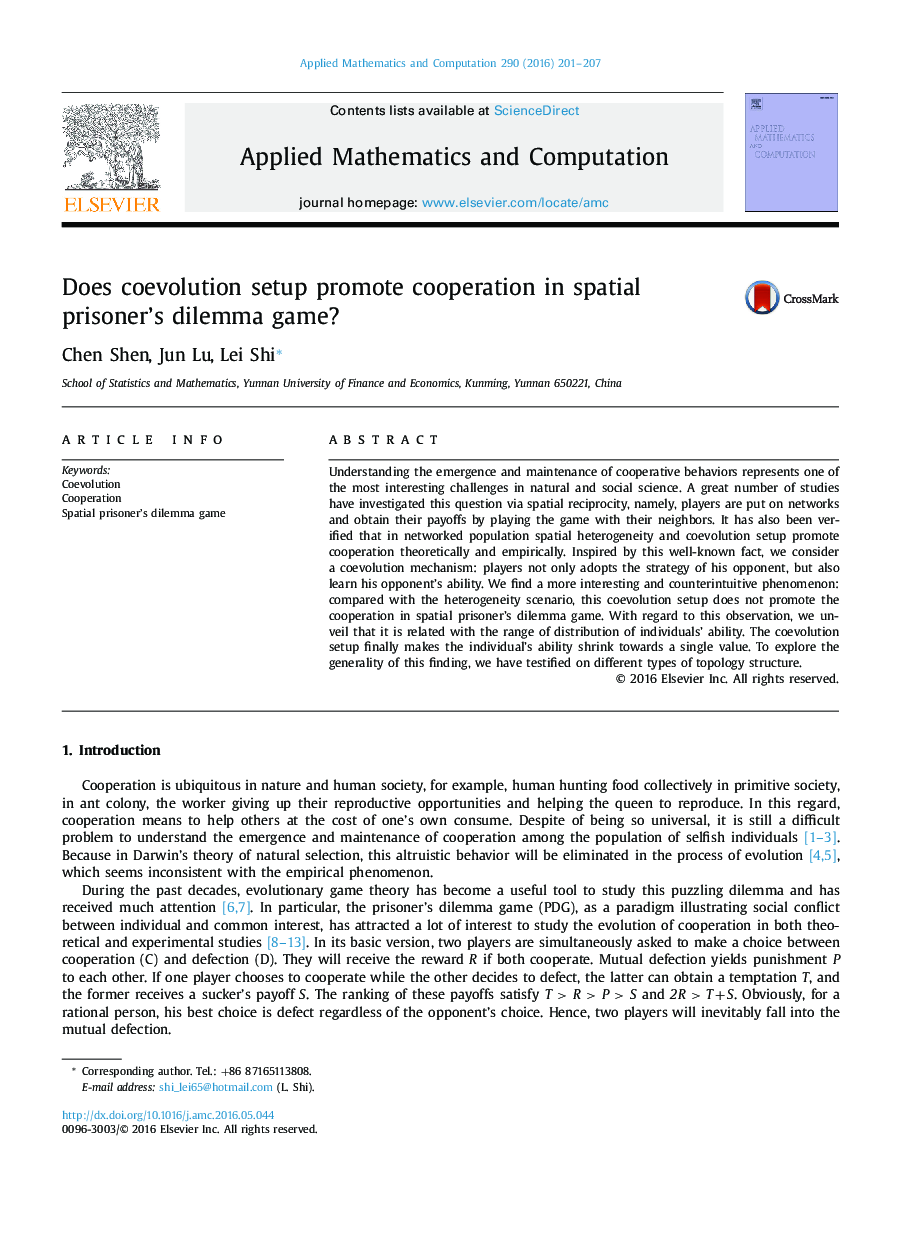| Article ID | Journal | Published Year | Pages | File Type |
|---|---|---|---|---|
| 4625619 | Applied Mathematics and Computation | 2016 | 7 Pages |
Understanding the emergence and maintenance of cooperative behaviors represents one of the most interesting challenges in natural and social science. A great number of studies have investigated this question via spatial reciprocity, namely, players are put on networks and obtain their payoffs by playing the game with their neighbors. It has also been verified that in networked population spatial heterogeneity and coevolution setup promote cooperation theoretically and empirically. Inspired by this well-known fact, we consider a coevolution mechanism: players not only adopts the strategy of his opponent, but also learn his opponent's ability. We find a more interesting and counterintuitive phenomenon: compared with the heterogeneity scenario, this coevolution setup does not promote the cooperation in spatial prisoner's dilemma game. With regard to this observation, we unveil that it is related with the range of distribution of individuals’ ability. The coevolution setup finally makes the individual's ability shrink towards a single value. To explore the generality of this finding, we have testified on different types of topology structure.
